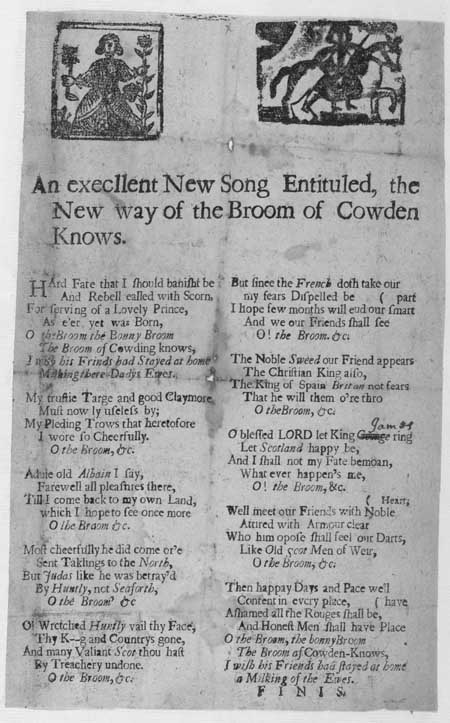Commentary
Verse 1: 'HArd Fate that I should banisht be / And Rebell called with Scorn, / For serving of a Lovely Prince, / As e'er yet was Born, / O the Broom the Bonny Broom, / The Broom of Cowding Knows, / I wish his Frinds had Stayed at home / Milking there Dadys Ewes.' The narrator of this ballad appears to be someone who has been exiled for supporting a Jacobite rising. It is more likely that the ballad refers to the 1715 rising in support of James Stewart, 'The Old Pretender', than the 1745 rising of 'Bonnie Prince' Charles Edward Stewart. Despite the ballad's Jacobite sympathies, verse eight praises the Hanoverian King George, probably to prevent the printer being accused of treason. However, a later hand has changed 'George' to 'James'. Early ballads were dramatic or humorous narrative songs derived from folk culture that predated printing. Originally perpetuated by word of mouth, many ballads survive because they were recorded on broadsides. Musical notation was rarely printed, as tunes were usually established favourites. The term 'ballad' eventually applied more broadly to any kind of topical or popular verse.
View Transcription | Download PDF Facsimile
|
 |
Probable date of publication:
1716 shelfmark: Ry .III.a.10(007)
 View larger image
View larger image
|


